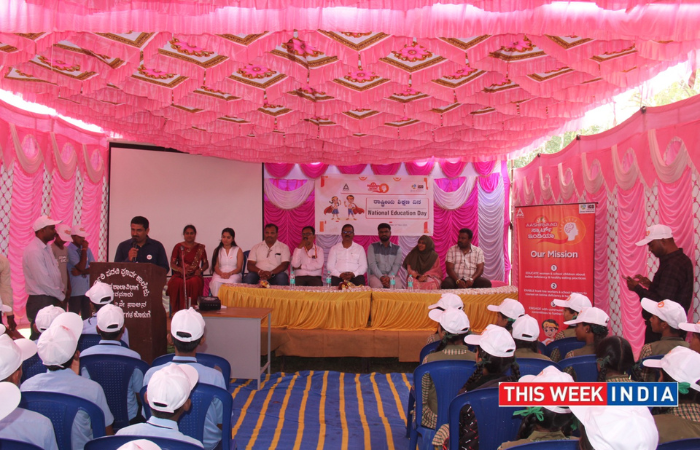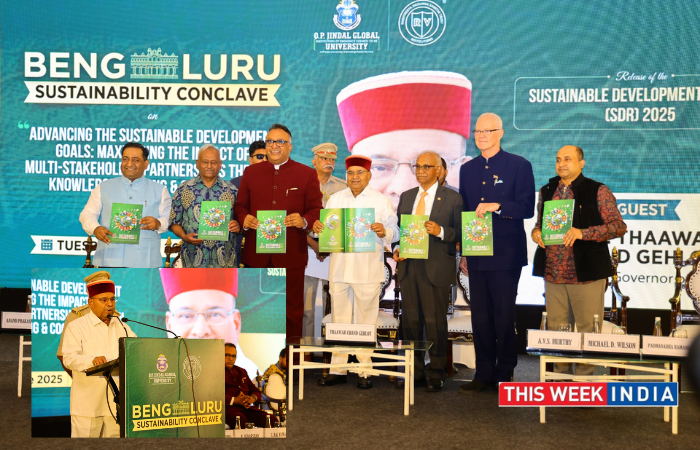By – Sriram Chitlur, Co-Founder & MD, Hosachiguru
Exploring The Hidden World Of Soil Beneath Our Feet This World Soil Day
Every person inherently seeks a state we all call happiness, and it’s time we addressed this essential pursuit. Achieving happiness isn’t as complex as it seems. Anyone who truly desires it can attain it by learning and applying a simple, effective formula. The secret? Immerse yourself in the beauty of nature. Surrounding yourself with the natural world is a sure path to happiness, bringing inner peace, sanity, contentment, and even compassion. Nature has a unique power to restore our spirits.
One element of nature whose value we often overlook is soil, an incredible world beneath our feet. Soil possesses remarkable powers to restore the Earth to its natural state and profoundly influence our inner well-being.
As we celebrate World Soil Day on December 5th, let’s explore the efforts made by managed farmlands to rejuvenate the soil through regenerative practices. These efforts have significant impacts, not only on our environment but also on our inner selves. The health of our soil is deeply connected to the health of our planet and our people.
What are Regenerative Practices?
Regenerative farming is a comprehensive approach that focuses on rejuvenating the soil, rather than merely sustaining it. This method incorporates a variety of practices such as agroforestry, mulching, applying natural fertilizers like jeevamrutam, composting, harvesting rainwater, creating swales and trenches, practicing no-till agriculture, and using biochar. All these techniques synergistically work to enrich the soil’s carbon content, enhance biodiversity, and boost the resilience of ecosystems.
This holistic strategy goes beyond traditional farming by aiming to heal and regenerate the soil, making it a living, breathing foundation that supports plant growth and sustains the surrounding environment more effectively.
The Impact of Regenerative Farming on Soil Health, Humans and Climate Mitigation
The vitality of soil is greatly enhanced by the microbes it contains, with a single teaspoon of soil being home to up to 1 billion bacteria. By implementing regenerative practices on managed farmlands, we foster an environment where bacterial activity can flourish.
Exposing children to microbe-rich soil plays a crucial role in developing and strengthening their immune systems. Outdoor activities not only bring them into contact with healthy soil but also expose them to direct sunlight, an excellent source of Vitamin D. In today’s digital age, it is more important than ever for children to connect with nature. Excessive time spent on digital devices can lead to cognitive delays, impaired learning, increased impulsivity, and a disconnection from the natural world of plants, animals, lakes, and the sky. Encouraging outdoor play helps bridge this gap, enhancing children’s health and reconnecting them with the environment.
The microbes present in the soil enhance their ability to break down organic matter, releasing essential nutrients that plants can absorb. This creates a full cycle: healthy soil leads to healthy plants, and consuming these plants contributes to our overall health.
Moreover, when we adopt regenerative practices in managed farmlands, we eliminate the need for synthetic fertilizers. The benefits of these practices extend far beyond the individual farm plots where they are implemented. They play a crucial role in mitigating climate change by sequestering carbon, demonstrating that sustainable farming can have a profound, positive impact on the global environment.
Make Eco-Conscious Choices Today For A Greener Tomorrow
The most crucial realization we need to reach is that to save our environment, we must repair our relationship with it and stop taking it for granted. Our actions today will determine the outcomes of tomorrow. This World Soil Day let’s become more conscious of our actions and take small, meaningful steps to make a difference. These steps can include recycling paper and plastics, repairing leaks to prevent water wastage, choosing sustainable products, using public transportation to reduce carbon emissions, and even creating a mini garden at home. You can use vegetable and fruit peels as natural compost for your garden. Remember, we have only one Earth, and it is our responsibility to take sustainable steps every day to preserve it.








